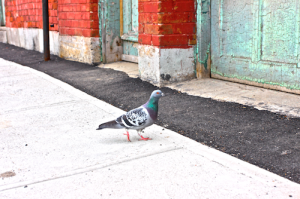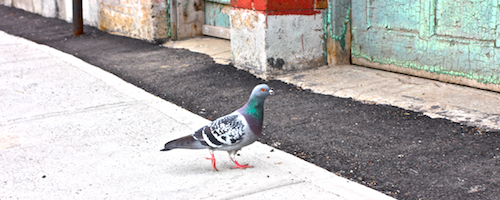
Six pigeons were used in a study on how animals and humans can be risk seeking for food rewards. (Photo: Guy Mayer)
A new study shows that when it comes to gambling and taking risks, humans and pigeons have more in common than you might think.
The study had pigeons and humans choose between different coloured options to receive a reward. Through experience they learned that some colours gave guaranteed rewards, while others gave risky (probabilistic) rewards, i.e. they may not always pay off.
Both humans and pigeons opted for the guaranteed option when the stakes were low, but selected the risky option when the stakes were high.
Original research paper published in the journal Biology Letters on August 26, 2014.
Names and affiliations of selected authors
